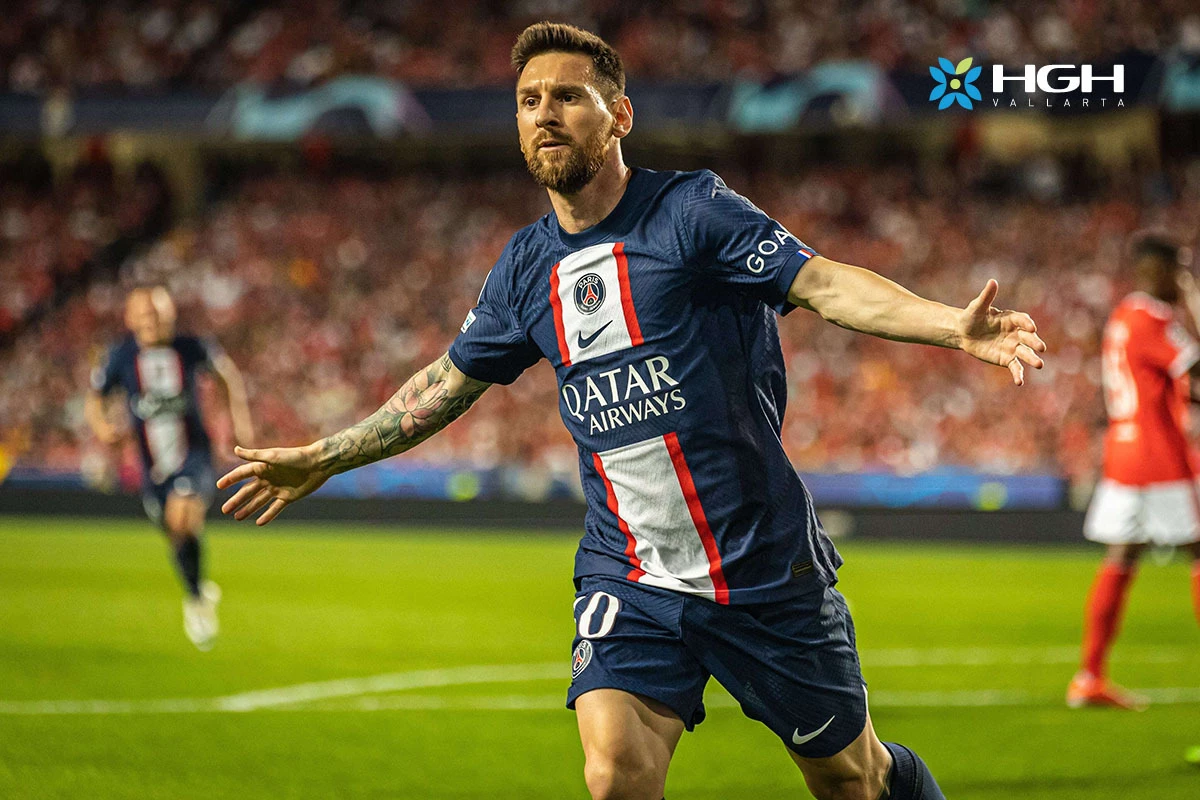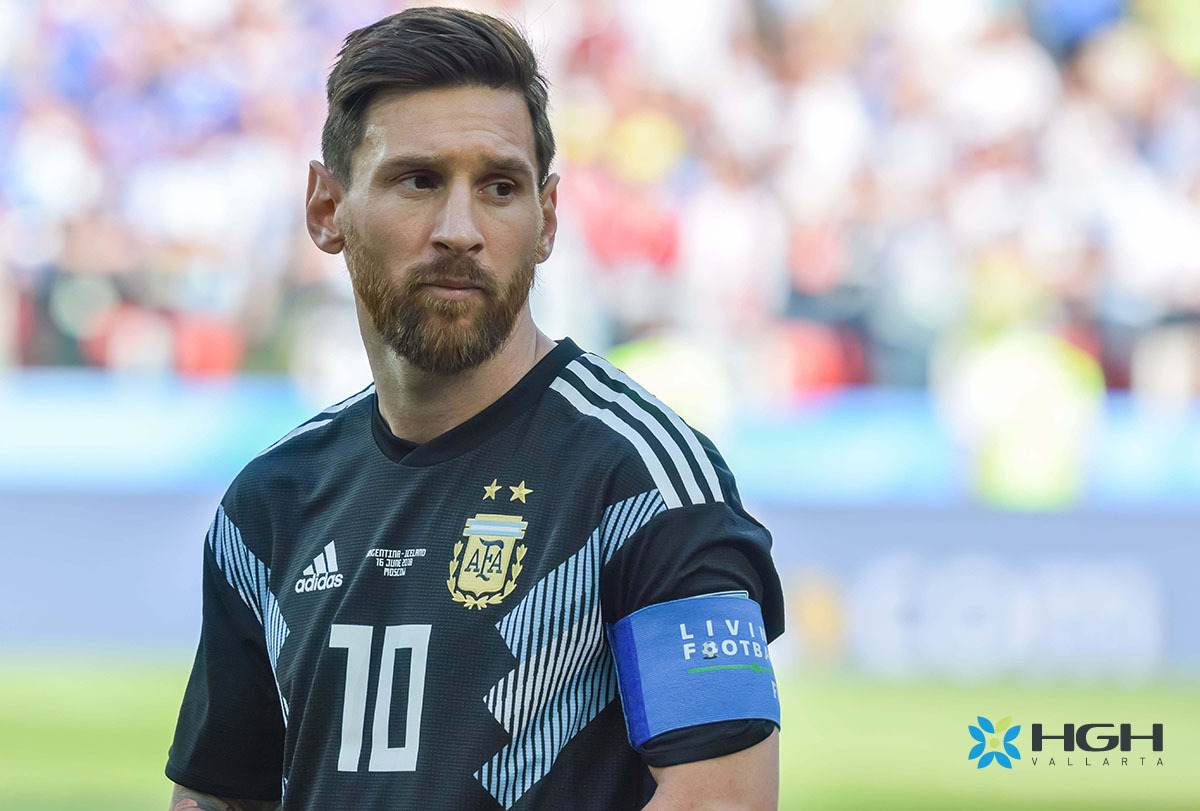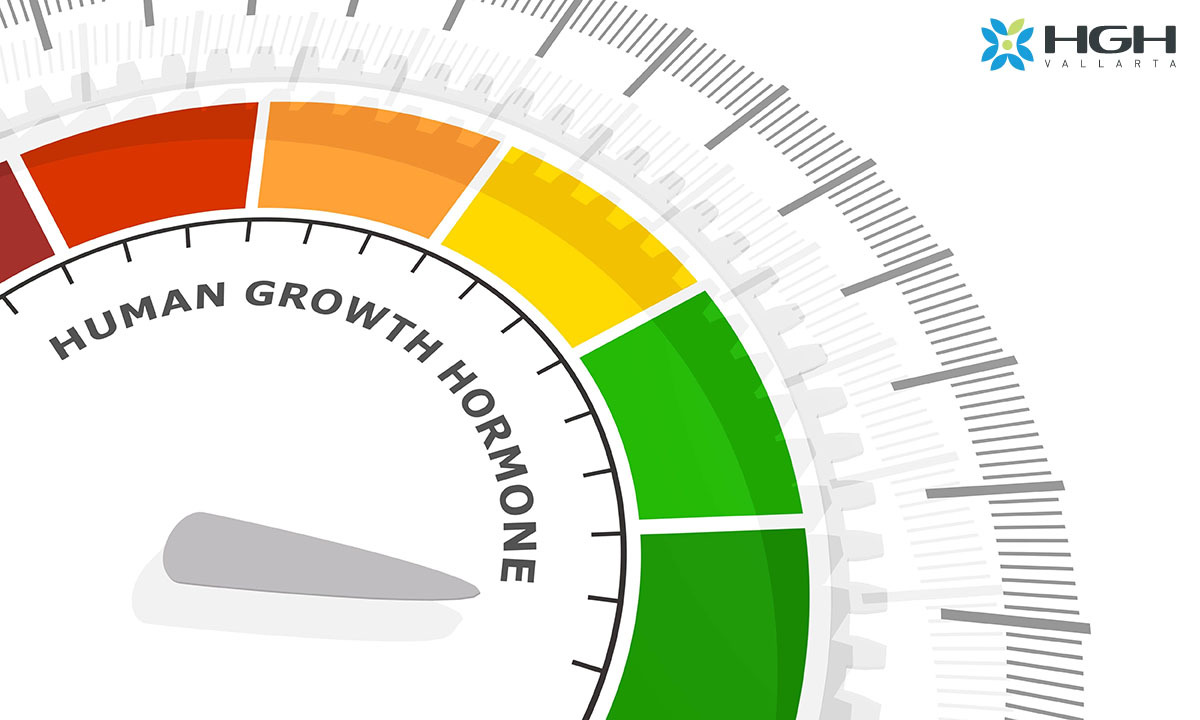At the age of 13, Lionel Messi, now a football icon, was diagnosed with a growth hormone deficiency.
His life took a turn when he started receiving Human Growth Hormone (HGH) treatment. This treatment was funded by Barcelona FC who recognized the immense potential in this budding talent.
Now, the question that looms large is, did Messi’s early use of HGH injections play a part in his staggering football success? How HGH took Messi to the top? This Messi HGH saga has piqued the curiosity of millions.
Through this exploration, we aim to not only delve into the Lionel Messi HGH story. We also want to illuminate the role HGH plays in physical wellness beyond the world of football.
Who is Lionel Messi?
Lionel Messi is more than just a name. He stands as an emblem of relentless dedication, unmatched skill, and a passion that knows no bounds. This Argentine-born footballer has mesmerized fans globally with his exceptional talent and precision on the field.
From humble beginnings in Rosario, Argentina, Messi was always destined for greatness. Early on, it was clear that he was no ordinary child; his love for the sport was apparent and his skills were astounding.
By the age of six, Messi was playing for a local club, Grandoli, coached by his father. His next stop was the well-known Newell’s Old Boys, where he was part of a team so successful it was nicknamed ‘The Machine of ’87’.
His raw talent was undeniable. Yet, behind the scenes, a young Lionel Messi was facing a challenge that threatened his dream.
Diagnosed with a growth hormone deficiency at the age of 10, Messi’s future in football was in peril. Despite this setback, Lionel Messi’s passion for the sport never wavered.
Instead, it fuelled his resolve, setting him on a journey that led him to Barcelona, where he would receive HGH treatment.
His career at Barcelona has been a series of triumphant victories, dazzling the world with his stellar performances. Messi, to date, has won the prestigious Ballon d’Or award six times, setting a record. He has led Barcelona to numerous titles, including the UEFA Champions League, Spanish La Liga, and the FIFA Club World Cup.
Yet, beyond the accolades and the fame, Messi remains a player deeply passionate about football. His tenacity, coupled with his extraordinary talent and early use of HGH injections, has seen him conquer challenges and stand tall as one of football’s greatest of all time.

Messi and HGH: Overcoming Short Stature
When Messi was just 10 years old, his journey took a sudden twist. Doctors diagnosed him with a condition known as growth hormone deficiency (GHD).
This condition slows growth in children and can cause shorter than average stature in adulthood. As you can imagine, for a budding athlete, this posed a significant challenge.
Fortunately, there was a solution. It was HGH, a hormone that stimulates growth, cell reproduction, and cell regeneration in humans.
Messi was prescribed HGH injections to tackle his condition. But these injections were expensive, and his family could not bear the costs indefinitely.
During this trying time, Barcelona FC spotted Messi’s unique talent. Recognizing his potential, they offered to cover his medical costs if he moved to Spain. This was an opportunity of a lifetime, and Messi and his family accepted.
The young Lionel Messi began taking daily HGH injections. The regimen was quite simple.
He had to inject the hormone under his skin, usually at night, to mimic the body’s natural rhythm of HGH production. This routine continued until he reached the age of 14, when he had achieved normal growth.
The impact of these HGH injections was evident. Messi’s height improved, reaching about 5 feet 7 inches, which is within the average range for an adult male. His overall health improved too. And as his health improved, so did his performance on the football field.
Yet, it is essential to remember that it wasn’t just the HGH injections that catalyzed Messi’s growth. His strength lay in his resolve, talent, and relentless passion for the sport. The HGH injections merely leveled the playing field, allowing his inherent talents to flourish without the constraints of his medical condition.
What is HGH and How Does It Work?
Human Growth Hormone, or HGH, is a hormone produced by the pituitary gland. This small gland is located at the base of your brain and plays a significant role in our growth and development.
When we are young, our bodies produce HGH in large amounts to support the rapid growth that occurs during childhood and adolescence. It promotes the growth of nearly all tissues in the body, including bones. This is crucial for a child’s growth and development.
But HGH does more than just aid growth. It also plays a key role in regulating body composition, body fluids, muscle and bone growth, sugar and fat metabolism, and even heart function. Simply put, HGH helps keep our bodies running smoothly.
For people with a growth hormone deficiency, like the young Lionel Messi, their bodies don’t produce enough HGH. This is where HGH injections come in. When administered under medical supervision, these injections can help children achieve normal growth.
But how exactly do HGH injections work?
When HGH is introduced into the body through an injection, it gets absorbed into the bloodstream. From there, it travels to the liver, where it stimulates the production of a protein called insulin-like growth factor 1 (IGF-1).
IGF-1 is what really does the heavy lifting. It promotes the growth of bones and other tissues. In other words, the HGH injections help boost the body’s natural growth processes.
However, it’s worth noting that HGH can’t perform miracles on its own. A balanced diet, regular exercise, and adequate sleep also play crucial roles in growth and development.
Messi’s journey shows us that HGH treatment can help overcome a growth hormone deficiency, but it’s only one piece of the puzzle. IGF-1 is another key part of the puzzle.

Does Messi Still Use HGH?
An often-asked question in the sports world is, “Does Messi still use HGH?” It’s easy to understand why. With his phenomenal performances, many wonder if HGH is still part of his regimen.
However, the simple answer is no. Messi stopped using HGH when he turned 14. By then, he had reached a height within the average range for males, and his growth hormone levels were normal. There was no longer a medical reason for him to continue the treatment.
Yet, some speculate that Messi continues to use HGH for performance enhancement. It’s crucial to note that these are merely speculations with no concrete evidence. Messi has always passed his doping tests, which further supports the fact that he’s not taking HGH or any other banned substances.
HGH injections have played a significant role in Messi’s early life, allowing him to overcome his growth hormone deficiency. But his success on the football field is a testament to his inherent talent, resilience, and passion for the sport, rather than the outcome of ongoing HGH treatment.
It’s also important to understand that HGH should not be used for purposes other than prescribed by a medical professional. Misuse can lead to potential side effects and health risks. So, while the Lionel Messi HGH story is inspiring, it is not an endorsement for the non-medical use of HGH.
Did HGH Play a Role in Messi’s Success?
To fully understand the impact of HGH on Lionel Messi, we have to ask a crucial question, “Did HGH play a role in Messi’s success?” The Messi HGH story is well-known, and many wonder if his HGH treatment had any influence on his footballing skills.
Indeed, HGH played a role in Messi’s journey, but maybe not in the way some might think. Remember, Messi took HGH not for performance enhancement, but to treat a medical condition – growth hormone deficiency.
The treatments allowed Messi to grow to a normal height. This physical growth, in turn, enabled him to play football at a level competitive with his peers. Without HGH, Messi’s growth deficiency might have hindered his football career.
However, saying HGH was the sole or even the primary reason for Messi’s success would be an overstatement. Messi’s talent, dedication, and perseverance are the real reasons for his spectacular career. HGH treatment simply put him on an equal footing with other athletes in terms of physical growth.
At the same time, Messi’s journey can serve as a beacon of hope and encouragement for children dealing with growth hormone deficiency. His story shows that with the right treatment, they too can lead a normal life and maybe even excel in their chosen field.
Other Impacts of HGH on Messi’s Performance
While it’s true that HGH injections contributed to Messi’s growth, there’s more to the Lionel Messi HGH story. His growth to a regular height was just the beginning.
HGH also played a crucial role in other aspects of Messi’s athletic performance. So, how did HGH affect Messi’s career apart from helping him achieve normal height?
Firstly, HGH has been known to contribute to muscle strength. It does this by stimulating collagen synthesis in the skeletal muscle and tendons, improving physical capacity. This means that Messi’s HGH treatment might have helped him develop the muscular strength needed for those powerful kicks we see him deliver on the pitch.
Secondly, HGH can aid in faster recovery. Athletes often suffer from injuries, and recovery time is a crucial factor in their career progression. HGH is said to speed up bone regeneration, making it a potentially valuable factor in Messi’s career by reducing downtime from injuries.
Lastly, HGH might have contributed to Messi’s stamina. It plays a role in maintaining the balance of body fluids and the metabolism of sugar and fats. This could help in sustaining energy levels during long matches.
However, while these benefits are associated with HGH, it’s important to highlight that Messi’s success is not merely the result of his HGH treatment. His natural talent, hard work, discipline, and mental strength played the most significant roles in his spectacular career.
Messi’s HGH & Bodybuilding
Turning our focus towards bodybuilding, the question often arises, “Can HGH help?” It’s no secret that HGH injections have been used by bodybuilders and athletes to enhance performance, improve body composition, and facilitate recovery.
HGH aids in increasing muscle mass by stimulating the production of IGF-1, a hormone that promotes muscle growth. It also plays a crucial role in protein synthesis, a process that builds and repairs muscle tissues.
Moreover, HGH helps reduce body fat, particularly around the belly. It boosts metabolism, prompting the body to burn more fat for energy. This change in body composition – increased muscle mass and decreased fat – makes HGH a popular choice in body building circles.
HGH also promotes better sleep and quicker recovery post-workout. A good night’s sleep is crucial for muscle growth and recovery, as that’s when most muscle repair and building happen.
While all of these HGH effects seem like a perfect bodybuilding aid, it’s important to note that these results typically come from doses higher than those used in medical settings. High doses of HGH can have side effects and health risks, and it’s always advisable to use HGH under medical supervision.
Finally, remember the Messi HGH story – he used it to overcome a medical condition, not for bodybuilding or performance enhancement. His success in football came from his skills, hard work, and passion, not from HGH.

Taking Control of Your Performance with HGH
The Messi HGH journey helps us understand the multifaceted role HGH can play in our health and wellness. The world-class footballer is a testament to overcoming physical challenges and reaching dizzying heights of success. It’s essential, however, to remember that HGH is not a magic potion for success but a catalyst that, when used properly, can aid in physical development and wellbeing.
If you’re interested in learning more about HGH and its effects, particularly how it can enhance body building or assist in other wellness goals, HGH Vallarta is ready to guide you. Browse our HGH products today to see how we can help you optimize your performance.











